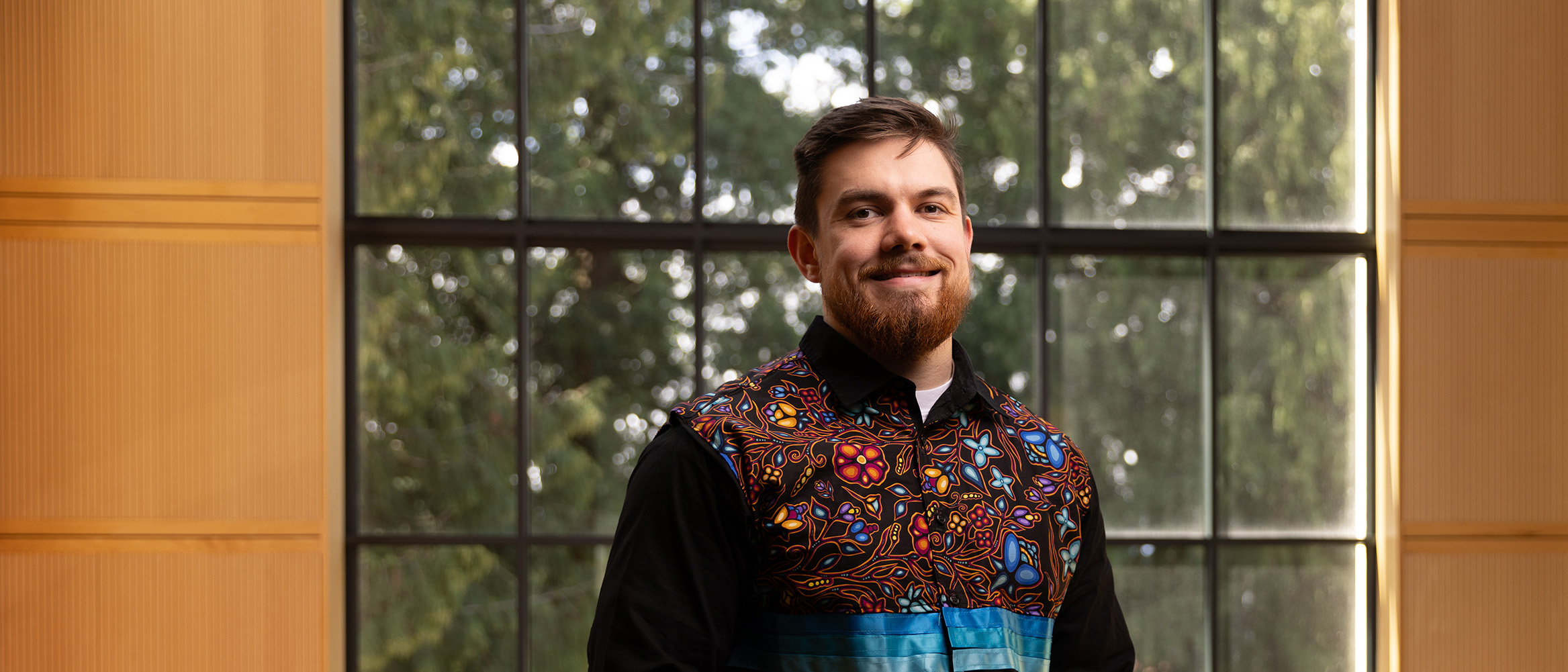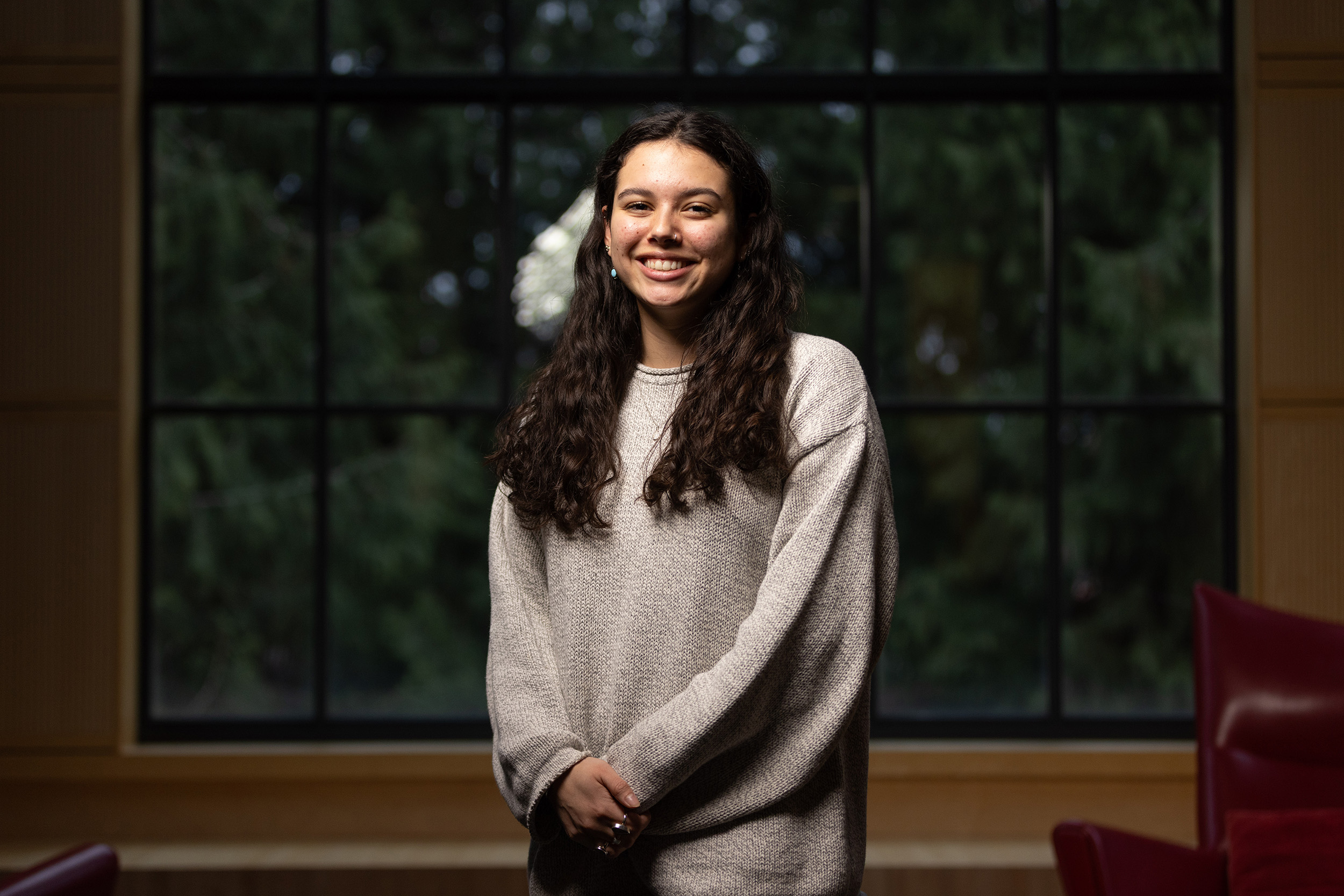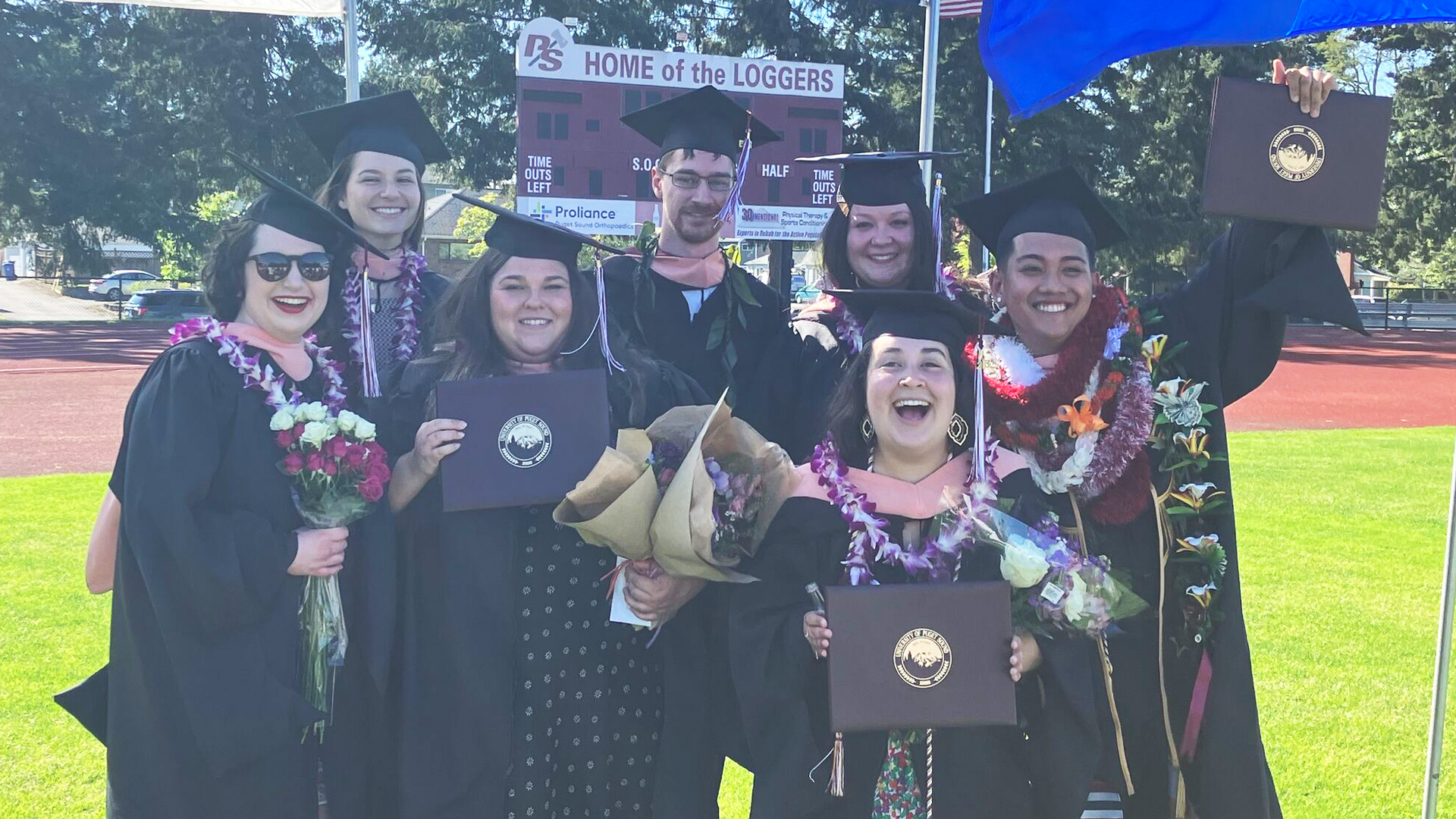During his internship in an acute psychiatric care facility, University of Puget Sound Occupational Therapy student Conner Kankelborg OTD’25 noticed Indigenous patients falling through the cracks of the healthcare system. Oftentimes, they were discharged without being referred to specific tribal health resources. The care they received didn’t always consider traditional knowledge and healing—factors that greatly improve tribal clients’ health outcomes.
“I got to see Native clients, see the resources they are and aren't receiving, and see the gap in care when somebody’s discharged,” Kankelborg says.
For Kankelborg, who is a first-generation descendant of the Little Shell Tribe of Chippewa Indians and an enrolled member of the Manitoba Metis Federation, addressing longstanding disparities in healthcare for Indigenous people is deeply personal. So, when he had the chance to advocate for change at the state level, he was excited.

As part of the doctoral track at Puget Sound’s School of Occupational Therapy, students design a capstone project and participate in a 14-week internship. Informed by his clinical rotation at the hospital, Kankelborg used his capstone project to address health disparities and how occupational therapists can better serve Indigenous clients.
“It’s like writing a dissertation,” Kankelborg explains. “I completed a literature review on the role of occupational therapy interventions when working with Indigenous clients with chronic health conditions like diabetes and how to provide care while being culturally safe and competent, recognizing that the client is the expert on their own health.”
Rather than offering one-size-fits-all solutions, his project emphasizes a collaborative, culturally respectful approach—what he describes as a horizontal model of care that values traditional ways of knowing and engages local communities in managing their own health, rather than a prescriptive approach that prioritizes professional expertise at the expense of marginalized populations.
Kankelborg was able to put his research into practice through his internship placement with Washington State’s Behavioral Health Administration, where he worked in the Tribal Affairs division. There, he focused on improving care for Indigenous patients in state-run behavioral health facilities like Western and Eastern State Hospitals.
One of his projects with BHA was creating a comprehensive discharge planning guide that connects Native patients to culturally relevant healthcare resources to continue their treatment once they leave the facility. He’s also advocating for policy changes, including a proposal to collaborate with tribal governments when one of their members is admitted to a state facility—a practice that’s standard for foreign nationals but hasn’t historically been extended to sovereign tribal nations.
“It’s not often in your professional life that you can make a difference in people’s lives at the policy level,” says Kankelborg. “Being able to channel my passion into improving the level of care for tribal citizens is something I’m incredibly proud of.”
Encouraged by Professor and Director of Occupational Therapy Renee Watling, Kankelborg plans to present his project at the American Occupational Therapy Association’s national conference. He hopes to continue to be an advocate for the mental health needs of Indigenous clients and incorporate traditional knowledge into his practice as a therapist.




